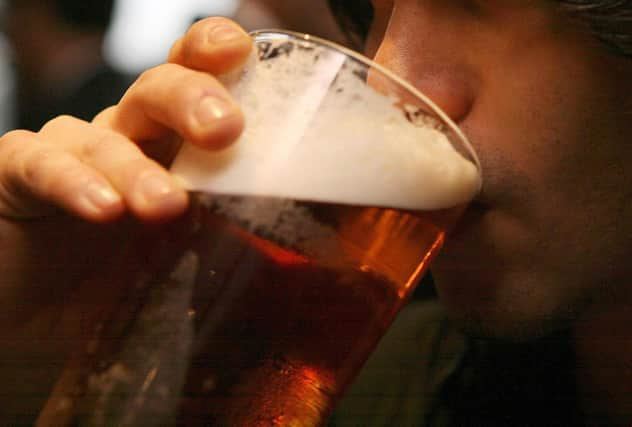Scotland alcohol deaths: Causes of drop in hospitalisations 'unclear' amid spiralling drink deaths


The reasons behind the drop in Scotland’s alcohol-related hospital admissions “remain unclear”, according to experts, especially against a backdrop of spiralling drink deaths.
Alcohol-related hospital admissions in Scotland fell by 11 per cent in 2022-23 compared with the previous year, figures show, but over the last three years alcohol deaths have increased by 25 per cent.
Advertisement
Hide AdAdvertisement
Hide Ad“On the face of it, this fall in alcohol related hospital admissions, continuing the downward trend of recent years, looks like good news,” said Dr Alastair MacGilchrist, chair of Scottish Health Action on Alcohol Problems.
“However, the reasons behind this fall - at a time when deaths from alcohol have been rising - are unclear.”
One possible factor, according to Dr MacGilchrist, is that liver disease, which accounts for the vast majority of alcohol deaths, only makes up a small amount of hospital admissions.
“The majority of these hospital admissions are for acute problems such as alcohol poisoning or alcohol withdrawal syndrome,” she said.
“Most of the reduction in admissions is for those acute alcohol conditions - with only a slight reduction in liver disease admissions.”
Public Health Scotland data shows there were 31,206 hospitalisations due to alcohol last year, with 92 per cent of such admissions treated in general acute hospitals and the remaining eight per cent in psychiatric hospitals.
But figures from 2021-22 showed there were 35,187 admissions in Scotland, with 94 per cent being general hospital stays and six per cent psychiatric.
The latest figures showed the 2022-23 statistics were the equivalent of 577 per 100,000 of the population, compared with 652 per 100,000 in 2021-22.
Advertisement
Hide AdAdvertisement
Hide AdAnd in the most recent year, men were 2.4 times more likely than women to be admitted to general acute hospitals for alcohol-related conditions than women.
This worked out at 749 stays compared with 315 per 100,000 of the population.
Those in the most deprived areas of Scotland were also seven times more likely to be admitted to general hospitals for alcohol-related conditions compared with their more affluent counterparts – 849 patients compared with 127 per 100,000.
A Scottish Government spokesperson said: “We want to make sure people have access to support when and where they need it – which is why last year, we provided a record £112m of funding to Alcohol and Drug Partnerships.
“This funding has helped support pilots of new and innovative approaches to alcohol treatment such as the Managed Alcohol Programme pilot in Glasgow.
“Research commended by internationally renowned public health experts estimates that our world-leading minimum unit pricing (MUP) policy has saved hundreds of lives, likely averted hundreds of alcohol-attributable hospital admissions and contributed to reducing health inequalities.”
Alison Douglas, chief executive of Alcohol Focus Scotland, said that “worryingly” there is evidence of increasing inequality in the data, “with people in our most deprived communities now seven times more likely to be hospitalised due to alcohol than those in our most well-off communities.”
“The reduction in hospital admissions should also be viewed in context of increasing alcohol specific deaths in Scotland,” said Ms Douglas, “up 25 per cent over the last three years, even with the protective effect of minimum unit pricing.”
Comments
Want to join the conversation? Please or to comment on this article.